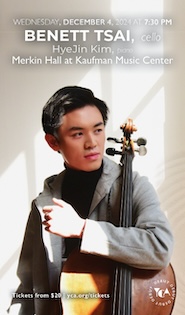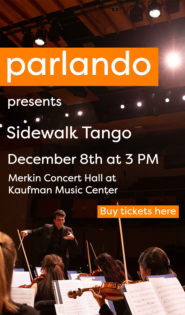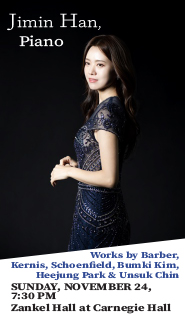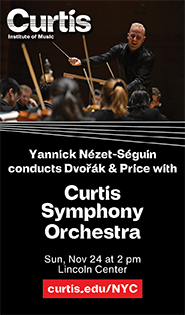Met’s first-rate cast provides warmth and delight in Mozart’s “Le nozze di Figaro”
The Metropolitan Opera’s revival of Le nozze di Figaro, which opened Saturday afternoon, is the most enjoyable thing the house has put on stage this season. On a cold January day, with the sun setting before 5 p.m., during another anxious stretch of the ongoing pandemic, any comedy would be welcome. That this Mozart/Da Ponte opera is one of the greatest works in the repertoire made it all that much better.
This was a splendid performance with a first-rate cast. Figaro is deep with roles, and even the smallest named-character part is important. The Met cast for this production surpasses the challenge with bass-baritones Ryan McKinny and Adam Platchetka and sopranos Lucy Crowe and Golda Schultz paired, respectively, as the principal duos of Figaro and Susanna and the Count and Countess Almaviva. To this, add mezzo-soprano Isabel Leonard in the principal secondary part of Cherubino—the best Cherubino in contemporary opera—and the hard work is nearly done.
Conductor Daniele Rustioni, who was impressive in the pit for Rigoletto on New Year’s Eve, led the orchestra and singers again. And from there came the only musical problems of the day. The Overture was lively—this is an opera where the curtain-raiser establishes the feeling of the whole thing—but there was a noticeable loss of energy at the coda, with some haziness coming into the tempo. From there, tempos and coordination with the singers were off through much of Act I. The performers and conductor often seemed to be suggesting the correct beat to each other, without antagonism but not always in agreement, especially in the opening scene with Figaro and Susanna.
Still, McKinny and Crowe were full of vitality with clear sound and articulation, springing off the opening of their lines like “Se a caso Madama”—there was not a bad note sung throughout the whole performance and they presented a delightful youthful spirit.
The secondary characters helped bring the ensemble together, starting with the entrance of bass-baritone Maurizio Muraro as Dr. Bartolo and mezzo-soprano Elizabeth Bishop as Marcellina. Muraro sang “La vendetta” with a rich sound, and Bishop’s insult-laden duet with Crowe that followed was terrific, well sung and with comical effect that was an art in and of itself.
The music in Figaro touches on the comical and the tender. The latter is carried by the Countess, and Schultz was as fine as all the other leads. “Porgi amor” was deeply involving, the music flowing from the orchestra and through her with marvelous ease of tempo and phrasing. Her voice was shining, and though this is a showcase aria, she wrapped her expression within the character. Schultz made the character human without pathos, and that made the comedy that much stronger.
By this point, the opera moved along so naturally and enjoyably that one was no longer listening to how the details might be working but taking in the performance as a whole and feeling the presence of the characters.
Her counterpart, Plachetka, managed the same feat, even as the role is not just for a heavier voice but a more ostentatious figure. He eschewed a louche portrayal for the buffoonery of overconfidence and cluelessness. The entire opera revolves around what the Count does and what is done to him, and by pressing the comedy to the max, Plachetka made everyone else around him funnier. For example, by conveying the Count’s constant confusion, he showed Figaro as a fast talker, without McKinny needing to exaggerate. In the final Act, there was a great contrast between the Count’s foolishness and Figaro’s forlorn feelings at thinking Susanna betrayed him. The agility of McKinny’s expression throughout the opera was impressive.
The performance rose to a remarkable feeling of naturalness, the artifice of the opera dissolving before the palpable feeling of the drama. Leonard was an important part of this. Her voice sounded particular grounded and lovely, and she was lively on stage, with the grace to be able to believably express awkwardness. With that, and the fullness of her voice and simple phrasing, her “Voi che sapete” was one of the more believable trouser performances one has witnessed.
Tenor Giuseppe Filianoti was a highlight as Don Basilio. His Italian articulation as was exceptional, no surprise in that it’s his native language. But hearing each syllable and vowel shaped so fully was perfect for the character, pedantic and insinuating at the same time, and hilarious. Likewise, bass-baritone Paul Corona was excellent as an irritated, blustery Antonio, and as Barberina soprano Erika Baikoff delivered a lovely “L’ho perduta,” full of feeling.
The revival of Richard Ayres production, which premiered in 2014, remains a mixed bag. Set in Spain in the 1930s, the metallic-looking castle superstructure, grows more off-putting with repeated viewing, mitigated somewhat by the stylish costumes by Rob Howell.
However, the staging by revival director Paula Williams was excellent, full of focused activity that mirrors the energy in detail in this extraordinary score. There is genuine physical comedy, like the Count freezing in mid-axe stroke when Susanna, not Cherubino, steps out of the Countess’s closet. And even when nothing is happening in the opera, like during the Overture and intermission, the castle’s staff moves about the stage, preparing everything for its masters.
That is the reality of this opera that the Met’s production brings to life on the stage—unlike music dramas about heroes and villains, this is one about ordinary people, with all the attendant jobs and relationships and pleasures, and complications of life when those things inevitably come into conflict.
Le Nozze di Figaro continues through April 21. metopera.org





Posted Apr 07, 2022 at 9:48 am by Edward Leibowitz
My wife and I loved it.The cast was great.this was the best figaro ever